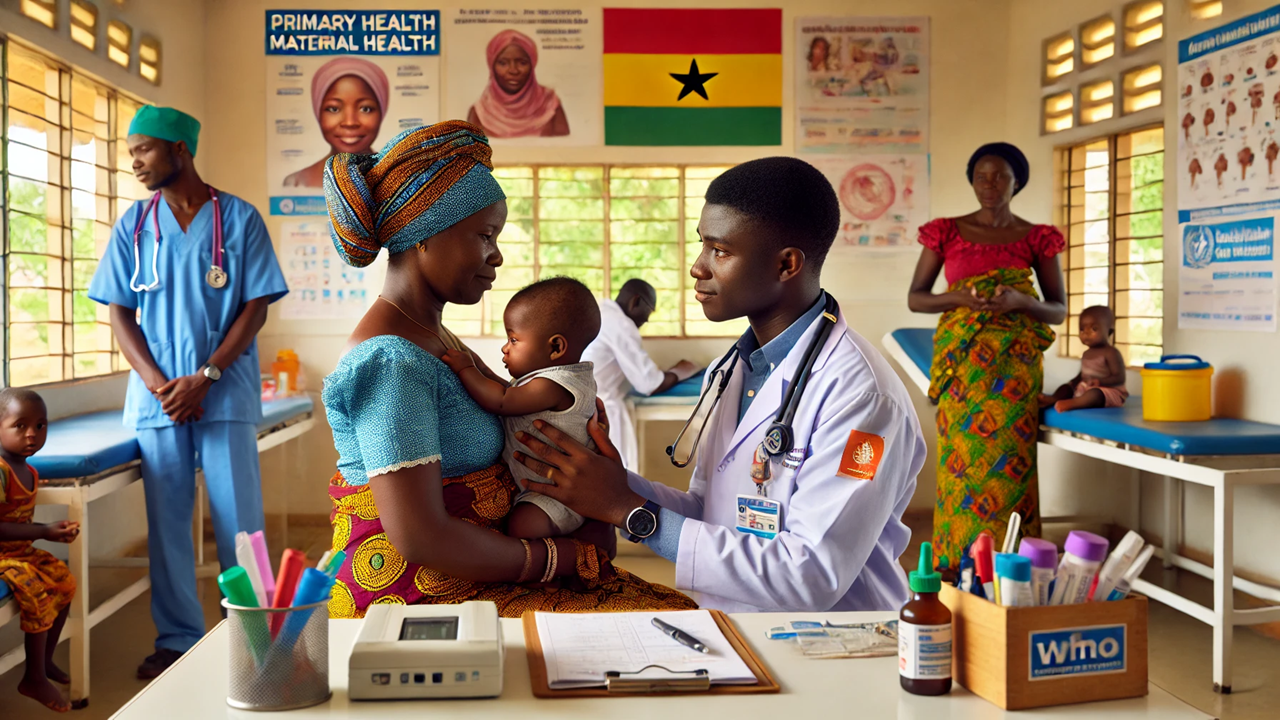Ghana Strengthens Commitment to Adolescent Health, Education and Well-being
Opening the meeting on behalf of the Minister of Health, Chief Director Mr. Desmond Boateng described the WCA Commitment as a pledge to place young people at the very centre of policy-making and service delivery.

- Country:
- Ghana
Adolescents and young people account for nearly a quarter of Ghana’s population, representing both a demographic challenge and a tremendous opportunity for social and economic transformation. Yet many face persistent barriers, including early pregnancies, limited access to family planning services, rising mental health concerns, and heightened risks of violence, HIV infection, and substance use.
Recognizing these challenges, Ghana has reaffirmed its pledge to invest in the health and development of its youth by hosting a two-day national dissemination meeting on the Western and Central Africa (WCA) Commitment for Educated, Healthy, and Thriving Adolescents and Young People. The event also served to orient stakeholders on the updated Global Accelerated Action for the Health of Adolescents (AA-HA! 2.0) Guidance, a practical framework designed to help governments prioritize adolescent well-being.
Putting Adolescents at the Centre of Policy
Opening the meeting on behalf of the Minister of Health, Chief Director Mr. Desmond Boateng described the WCA Commitment as a pledge to place young people at the very centre of policy-making and service delivery.
“This meeting provides us with the platform to disseminate our commitment and orient key stakeholders on tools, strategies, and approaches. Together, this will guide us to improve service delivery, enhance coordination, and ensure the voices and needs of young people remain central,” he said.
Dr. Katherine Attoh, National Professional Officer for Reproductive, Maternal, Newborn, Child, Adolescent and Healthy Ageing at WHO Ghana, highlighted the importance of the updated AA-HA! 2.0 guidance, noting that it incorporates lessons learned over the past six years and reflects youth experiences during the COVID-19 pandemic. “WHO remains committed to supporting the Government of Ghana in ensuring that adolescents are healthy, educated, and thriving,” she affirmed.
Progress and Ongoing Challenges
Discussions at the meeting revealed both progress and pressing concerns. Ghana is approaching gender parity in school completion, yet adolescent pregnancies still account for 10% of all pregnancies nationwide. Family planning remains a major gap, with 44% of unmarried young women reporting an unmet need for contraception.
Mental health issues affect more than one in four adolescents (26.6%), while drug use (5.7%) and physical inactivity (82%) pose growing risks. Violence, unintended injuries, and HIV remain significant concerns, with young people representing 31% of all new HIV infections in 2024.
Youth Voices and Community Partnerships
A central theme of the gathering was the importance of meaningful youth engagement. Mrs. Selina Dussey, Head of Quality at the Ministry of Health, stressed: “Young people must be meaningfully involved in every stage of planning and implementation.”
This was echoed in a vibrant youth-adult panel where young leaders demanded greater accountability, while traditional and religious leaders emphasized cultural and community-based strategies to complement government programmes.
Tools for Action: AA-HA! 2.0 Guidance
The updated AA-HA! 2.0 guidance was presented as a key tool to help Ghana refine its strategies. According to Dr. Prerna Banati of WHO Headquarters, the guidance is designed to help countries identify priorities, strengthen partnerships, and implement evidence-based actions at scale.
WHO Regional Advisor for Child and Adolescent Health, Dr. Geoffrey Bisoborwa, led sessions on health-promoting schools, evidence-based interventions, and practical tools such as needs assessments and landscape analyses.
Outcomes and Next Steps
Stakeholder workgroups refined Ghana’s draft adolescent health action plan, initially developed during the Lomé regional meeting. A key outcome was the agreement to conduct regional-level dissemination and joint planning with WHO, UNESCO, UNFPA, and the Ministries of Health and Education to accelerate the rollout of Ghana’s national strategy for adolescent health and education.
By advancing the WCA Commitment and adopting AA-HA! 2.0 guidance, Ghana has taken another decisive step towards ensuring that its young population is not only healthy and educated but also empowered to thrive socially and economically.
As Dr. Attoh reminded participants, “Investing in adolescents is not optional — it is the most strategic investment Ghana can make for a sustainable and prosperous future.”










